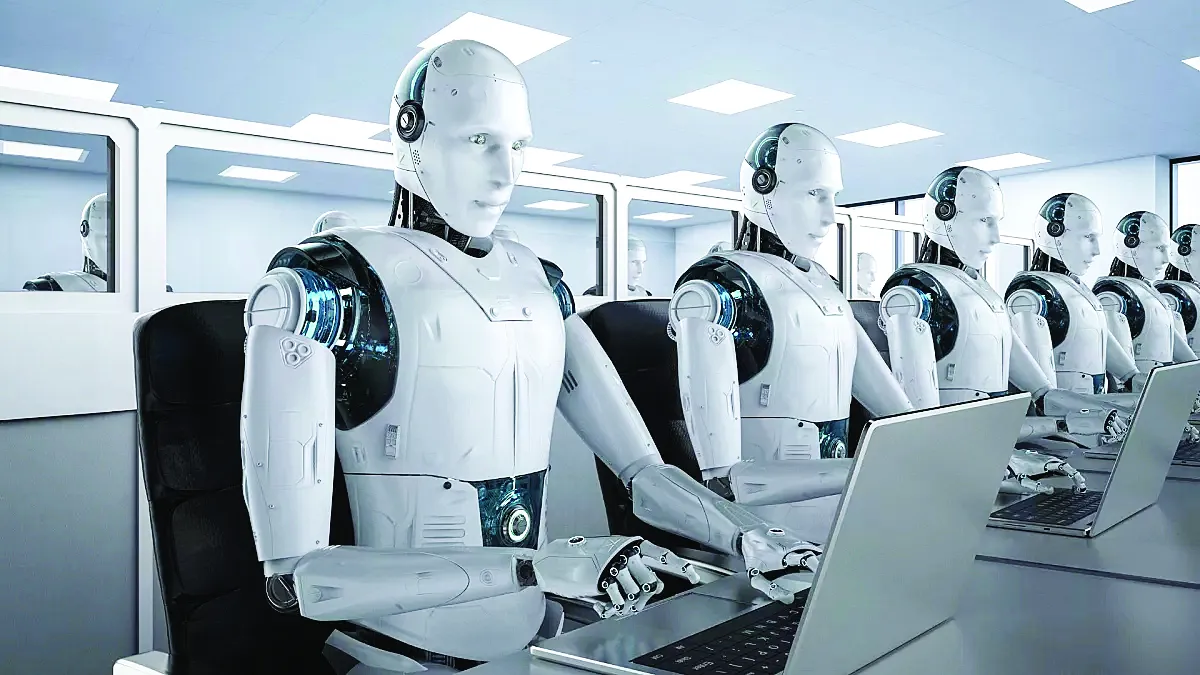The modern era with technological artefacts, products, and services have strong effects in our day to day lives. Technological advancements such as ICT, have also transformed our governance systems and administration through the adoption of e-governance, provided citizen-centric governance products, processes and services to curb the menace of corruption, overcoming slow information processing and dissemination. e-governance is the application of ICT for the delivery of government services to citizens effectively and efficiently. It brings government machinery to the doorstep of citizens, exchanges information between government & citizen, government & business, within government horizontally and vertically. For example, Passport Seva of the Ministry of External Affairs(MEA) for issuance of passport, BHIM payment system, and Government E-Marketplace(GeM) for procurement of goods and services by government institutions online etc.
Although, The present state of adoption of e-governance has helped the citizens in many ways. Still, The satisfaction level in India is low due to unstructured processes, technical barriers and difficulties such as lack of shared standards and incompatible infrastructure among government institutions and stakeholders. The government has faced many challenging governance tasks, suffered periodically from similar types of situational trends and events. For example, floods in Bihar and Assam, drought in Rajsthan, Maharastra and Andhra Pradesh, farmer suicide incidents, health emergencies like dengue and transportation congestion problems etc. Furthermore, the recent COVID-19 saga and its management resulting in hardships to immigrant workers, health workers and posing socio-economic challenges in front of society have reflected that the governance systems need transformation keeping the citizens in centrality. Let’s take the case of the USA, an Accenture study reported only 27 per cent citizens satisfied with the present level e-governance system and digital offering. Around 92 per cent of citizens expect better digital offering and services. This satisfaction level in India may be very low and more complex due to the Indian socio-economic diversity in the form of region, religion, way of living, culture, language, and caste and resources distribution at disposal, inequality in access to digital services etc. The questions in front of public policymakers are, how to give citizen-centric and more dedicated, personalised and effective governance to citizens in heterogeneous, multi-layered, socioeconomic diverse environments such as India? Can technology provide any solutions? Presently, technologies such as Artificial Intelligence(AI) and Big data analytics(BDA) can transform our governance systems. At present, the identification of beneficiary, patterns of their access to government services and behaviours, level of government intervention, the predictive output of government services, clustering of the targeted groups, cost optimization, monitoring in real-time and deciding on logical and rational bases are some of the challenges, need to be addressed.
e-governance systems have massive transactional and non-transactional data consisted of beneficiary details, time and location-specific, citizen-centric, physical, financial and governance services related information. This vast data can help in identifying behavioural and access patterns of services such as PDS, scholarships distribution, health emergencies, transportations congestions patterns, water demand distribution patterns, energy demand patterns at home etc. AI technology demonstrated some of the intelligence products such as a driverless. AI is the domain of computer science which studies the methods, tools to develop a machine which can think and work like human beings. Integration of AI with the e-governance systems will yield citizen-centric, rational governance services. Time is ripe for the next level of governance that is Intelligent Governance(i-governance) ensuring citizen-centric, rational, democratised, accountable, transparent and objective governance. AI-powered processes will monitor information visually, temporally and spatially in real-time for better insights from auditory information to make accurate predictions, interact in real-time with citizens for rational public policy and decision making in critical spheres. I-governance system’s efficiency and accuracy will improve with more feedback and data from e-governance systems. Many governance tasks fall into the different categories such as answering questions related to procedures and policies, filling out and searching documents for government schemes for getting benefitted, managing proper routing of requests, document translation and drafting. Intelligently automating work through AI Bots, could save government employee’s time to build better relationships with citizens. I-governance adoption in agriculture, public health, financial transparency, law and order, primary and higher education and poverty reduction and sanitation can revolutionise the governance experience of the citizens optimally. For example, in agriculture, farmer distress state wise, farmer suicide can also be predicted by collecting and structuring already collected data from a 360-degree point of view. For instance, using AI, Stanford researchers predicted poverty geographically from satellite imagery without going door to door. I-governance can also help reduce the inquiry and response time of citizens using both structured and unstructured data. In some sectors such as energy, traffic and pollution several situations can be predicted based on historical data. AI can automate repetitive tasks, can give binary answers based on the diverse dataset of governments such as SIRI and ALEXA, can provide physical and visual insights, can reduce the burden of summarization of quantitative and qualitative reports from data sets to be published and tend to be made public.
The foundation of AI is learning from the data. If data is biased then results and decisions can also be biased. For example, Amazon AI-based recruitment system majorly rejected the female candidate because of biased data. In addition to biases, there are other ethical issues as well in areas of health, traffic, and military etc. The biases and ethical framework need diverse and interdisciplinary teams of experts to recommend the public policy for sector-specific concerns. Due to ethical issues, AI should not be tasked and adopted in making critical government decisions about citizens where trust is on the stake, such as judicial systems. For instance, risk scoring prediction of citizens and using that for criminal sentencing in justice systems were found to be biased. Such complex systems need thorough scrutiny as they might have drastic repercussions.
AI can have a long-lasting impact on governance services and satisfaction levels of digital services by enabling government machinery by improving efficiency, effectiveness, accuracy, and transparency. AI-driven i-governance also raises some questions of ethics, morality, and privacy, the pace of adoption of AI and its integration into digital tools. This requires a sincere and serious thought process over the data usage policies and protection mechanism.
Dr Sachin Kumar Sharma is an Assistant Professor at Cluster Innovation Centre, University of Delhi.























